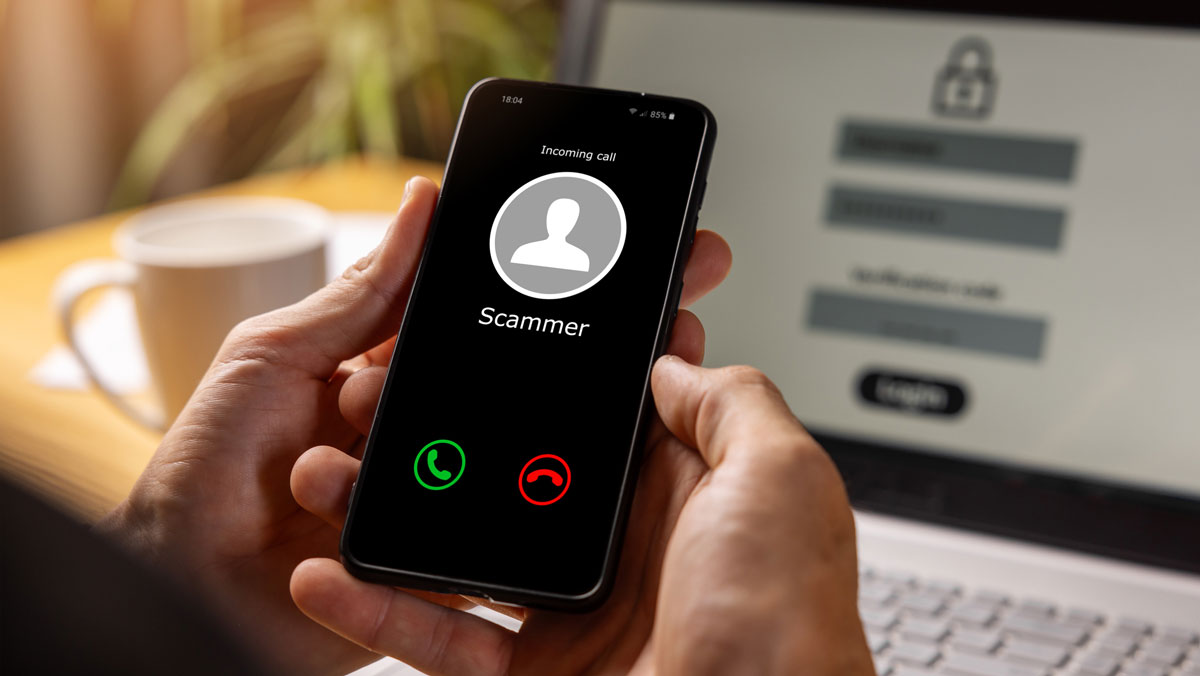
College students and recent grads, take note. If keeping up with your coursework, acing your exams and scrambling to hand in every term paper before the deadline weren’t enough, you now have something else to worry about: student loan scams are on the rise. Scammers know you hate owing tens of thousands of dollars, so they’re quick to offer you an easy, and completely bogus, way to free yourself from that debt. They might even falsely claim you owe the feds taxes on your debt. If you’re already stressed about your student loans, that makes you an easy target.
Don’t get scammed! All it takes is a lack of knowledge and a small blunder to be out thousands of dollars. Here’s what you need to know about the three most popular student loan scams.
Student loan forgiveness scam
In this scam, a “student loan debt company” will reach out to you and offer to completely forgive your student loans for a relatively small fee. Your student loans, gone? Sounds like a dream! Unfortunately, it’s more like a nightmare. No student loan company would completely forgive your loan, even for a fee. The company is likely bogus, and you’ve been targeted for a scam.
The fraudulent company attempts authenticity by sounding like Public Service Loan Forgiveness (PSLF), a legitimate federal government program for public servants with federal student loans. They may even claim to be connected to the U.S. Department of Education, but that is also false.
If you fall for this scam, you’ll still need to pay off your loan, plus you’ll lose the money you just shelled out. If you’re looking for student loan debt relief for your federal student loan, consider enrolling in a no-cost student loan repayment plan through the federal government.
Student loan consolidation scam
In a scenario similar to the above scam, a “student loan company” will contact you promising to consolidate your federal student loan and lower your monthly payments, all for a modest upfront fee. Right away, your guard should be up as you can consolidate your federal or private student loans yourself – and there’s no application fee to do so. Contact your loan servicer directly to learn more.
If you’re looking to consolidate your federal student loans or have questions, contact studentaid.gov directly.
Student loan tax scam
Those tax scammers will try everything to hook a victim. In this con, a scammer will spoof, or disguise themselves as, the IRS’ toll-free number and call a college student, claiming they owe thousands of dollars for a federal student loan tax.
The scammer will demand immediate payment upon threat of arrest or a lawsuit. They’ll also claim to only accept specific forms of payment, like a wire transfer, prepaid debit card, or cryptocurrency. If you’re on the receiving end of a phone call like this and you’re starting to panic, remember: the Federal Student Loan Tax does not exist. It’s nothing more than a not-so-clever trick made up by a crooked scammer. Also, the IRS will never reach out to you by phone without first notifying you via mail. Nor will they demand payment over the phone or insist on a specific payment method — especially a prepaid gift card or crypto.
If you’re targeted
If you’re targeted by a student loan scam, it’s crucial that you don’t engage with the scammer. Hang up as soon as you recognize a scam and delete any suspicious emails about your student loan that land in your inbox.
It’s equally important for you to bring the scam to the attention of the authorities to help them capture those scammers. You can file a complaint with the FTC , alert your local law enforcement agencies, and report any tax-related scams to the IRS.
Apply for real money for college
College is expensive whether you’re a new freshman or a graduated alumnus. If you’re about to start or are continuing your college journey, fill out your FAFSA application to see what you qualify for.
Apply for MSGCU scholarships
College doesn’t have to only be paid for with loans, scholarships are another option and don’t need to be paid back! In 2024, we are offering more than $100,000 in scholarships to students and educators to support their education. Applications are open January 3, 2024, through February 27 at 10 PM. Learn more about our scholarship programs.
Now that you know what scams to look out for, be sure to warn your friends and family so they know to be extra careful. Practicing caution and knowing what to expect will protect you from scammers who are out to scam anyone they can. School is hard work; you deserve to keep your money and your sanity.
Category: Security
« Return to "Blogs"























